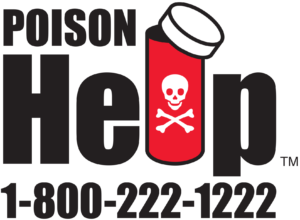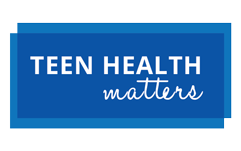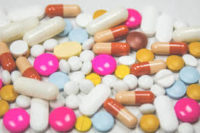
Drug-related poisonings account for 70,000 hospital visits, and result in 35,000 deaths a year (Poison Help 2017). Poisons include, but are not limited to, prescription medicines, painkillers, cleaning substances, cosmetics, and foreign toys or objects. In the teenage years, reasons for poison exposures shift from unintentional to intentional. Teens may use household products and medications to get high or to try to hurt themselves.
A poison is anything that can harm someone if it is used:
-
- in the wrong way
- by the wrong person
- in the wrong amount
There are many ways to prevent poisonings:
- Be prepared for an emergency. Keep the national, free Poison Helpline number at your fingertips by saving the number in your mobile phone: 1-800-222-1222
- Practice safe storage habits. Always store medicines and hazardous substances up, away, and out of sight of children. Keep these substances in their original containers.
- Read and follow all labels and directions. Review medicine and product labels before you use them.
- Detect invisible threats.Have a working carbon monoxide detector in your home.

If a friend is unconscious, not breathing, or having convulsions or seizures due to poison contact or ingestion, call 911 or your local emergency number immediately. If you or a friend has come in contact with poison and has mild or no symptoms,
call Poison Help at 1-800-222-1222.
Different types and methods of poisoning require different, immediate treatment.
- Swallowed poison. Remove the item and spit out any remaining substance. Do not make yourself vomit. Do not use syrup of ipecac.
- Swallowed battery. If you’ve swallowed a button-cell battery or a battery is lodged in your nose, ear, or throat, seek treatment in a hospital emergency department immediately. Serious tissue damage can occur in as little as 2 hours.
 Skin poison. Remove your clothes and rinse the skin with lukewarm water for at least 15 minutes.
Skin poison. Remove your clothes and rinse the skin with lukewarm water for at least 15 minutes.- Eye poison. Flush your eye by holding the eyelid open and pouring a steady stream of room temperature water into the inner corner for 15 minutes.
- Poisonous fumes. Go outside or into fresh air immediately. If your friend has stopped breathing, call 9-1-1. Start cardiopulmonary resuscitation (CPR) and do not stop until the friend breathes on his or her own, or until someone can take over.
Source: Healthychildren.org
For more information about poison prevention, visit the National Capital Poison Control website or the Safe Kids Worldwide website.
If you need immediate help,
call Poison Help at 1-800-222-1222 or 9-1-1.

